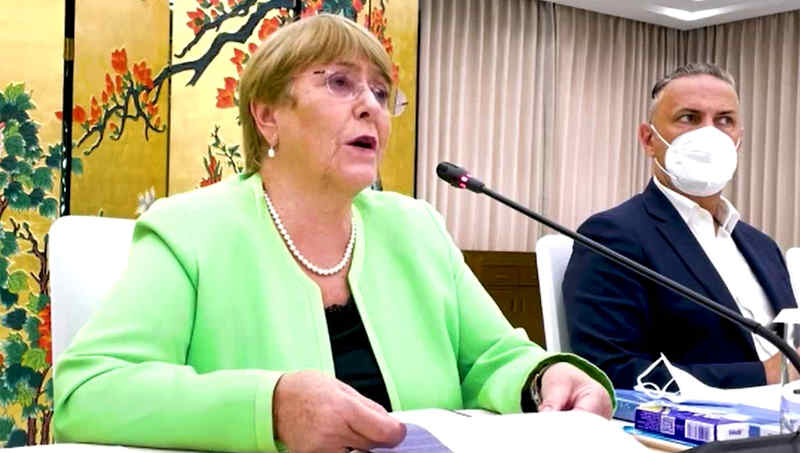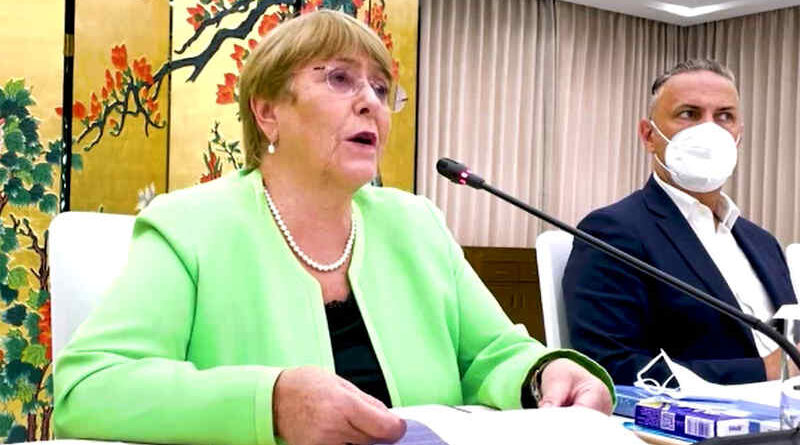Michelle Bachelet Raises Human Rights Concerns in China with President Xi Jinping

The UN High Commissioner for Human Rights Michelle Bachelet after her six-day official China visit that ended on May 28 thanked the Government of China for its invitation to her.
It is for the first time in 17 years that a UN High Commissioner for Human Rights has been able to travel to China and speak directly with the senior Government officials in the country and other interlocutors on key human rights issues, in China and globally.
Ms Bachelet also appreciated the China Government’s efforts in making her visit happen, particularly the arrangements for her virtual meeting with President Xi Jinping.
Without detailing the outcome of her meeting with Chinese officials and others, Ms Bachelet in her statement on May 28 informed that she and her office met virtually with a number of civil society organisations that are working on issues relating to Xinjiang, Tibet, Hong Kong, and other parts of China.
“My visit has also been informed by the work of the UN human rights mechanisms on China over many years, and the preparatory work done by my office and my advance team that arrived in China on 25 April,” she said.
Ms Bachelet welcomed China’s stated aim of ensuring quality development, closely linked to strengthening the rule of law and respect for human rights. This is formulated in the Human Rights Action Plan of China and other policy documents.
“My team had in-depth discussions on how national legislation and practices must reflect international human rights laws and standards, particularly in relation to law enforcement and judicial procedures, and we look forward to continuing to share our expertise with the Government and judiciary,” she said.
In the Xinjiang Uyghur Autonomous Region, she raised questions and concerns about the application of counter-terrorism and de-radicalisation measures and their broad application – particularly their impact on the rights of Uyghurs and other predominantly Muslim minorities.
She also shared the concerns of UN human rights mechanisms about legitimate activities by lawyers, human rights defenders, and others being penalized under the national security framework. UN human rights bodies have found the system of Residential Surveillance constitutes arbitrary detention and have called for its repeal.
Ms Bachelet said that the Government has also stated that it will invite senior officials from her office to visit China in the future.





